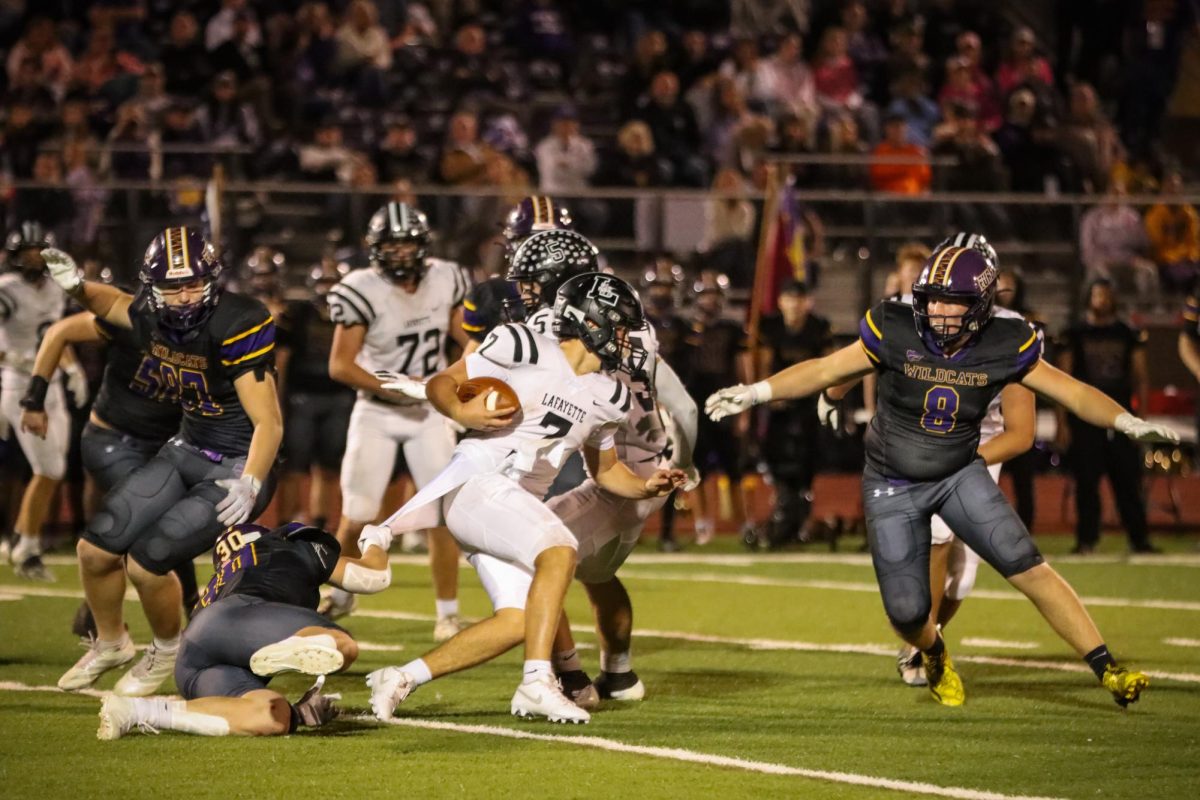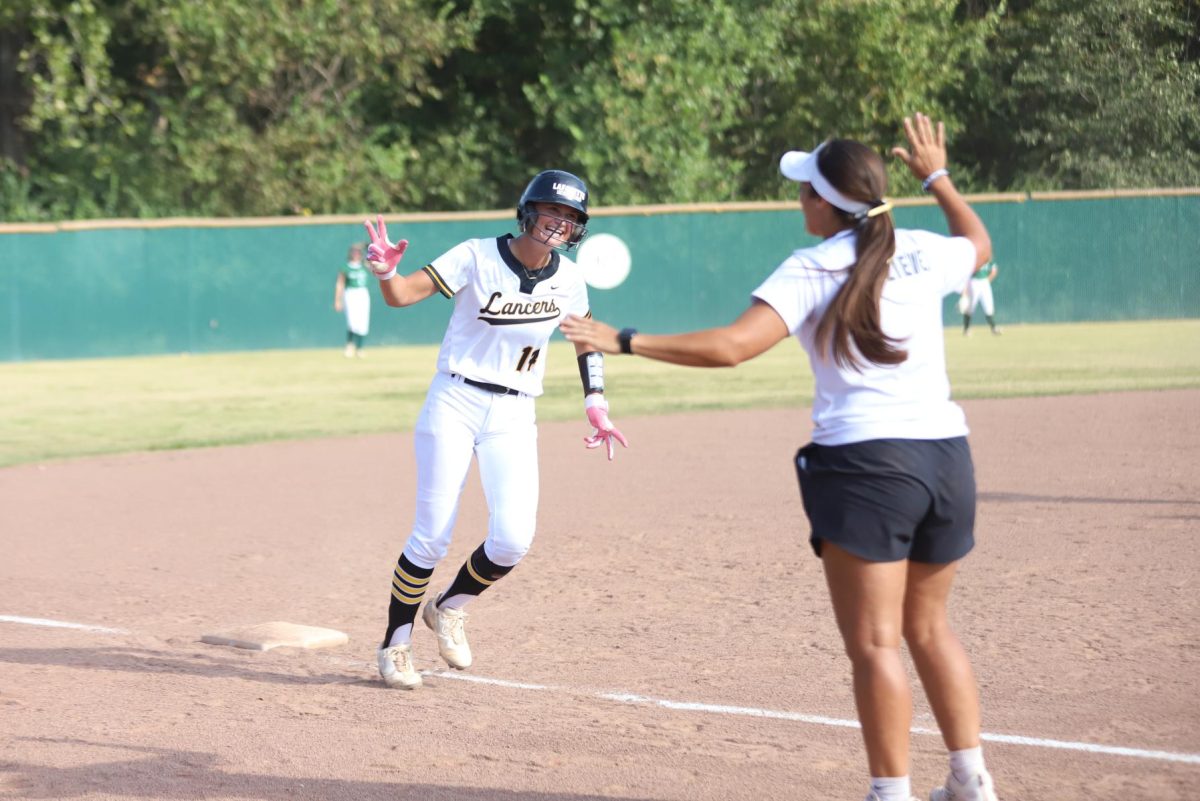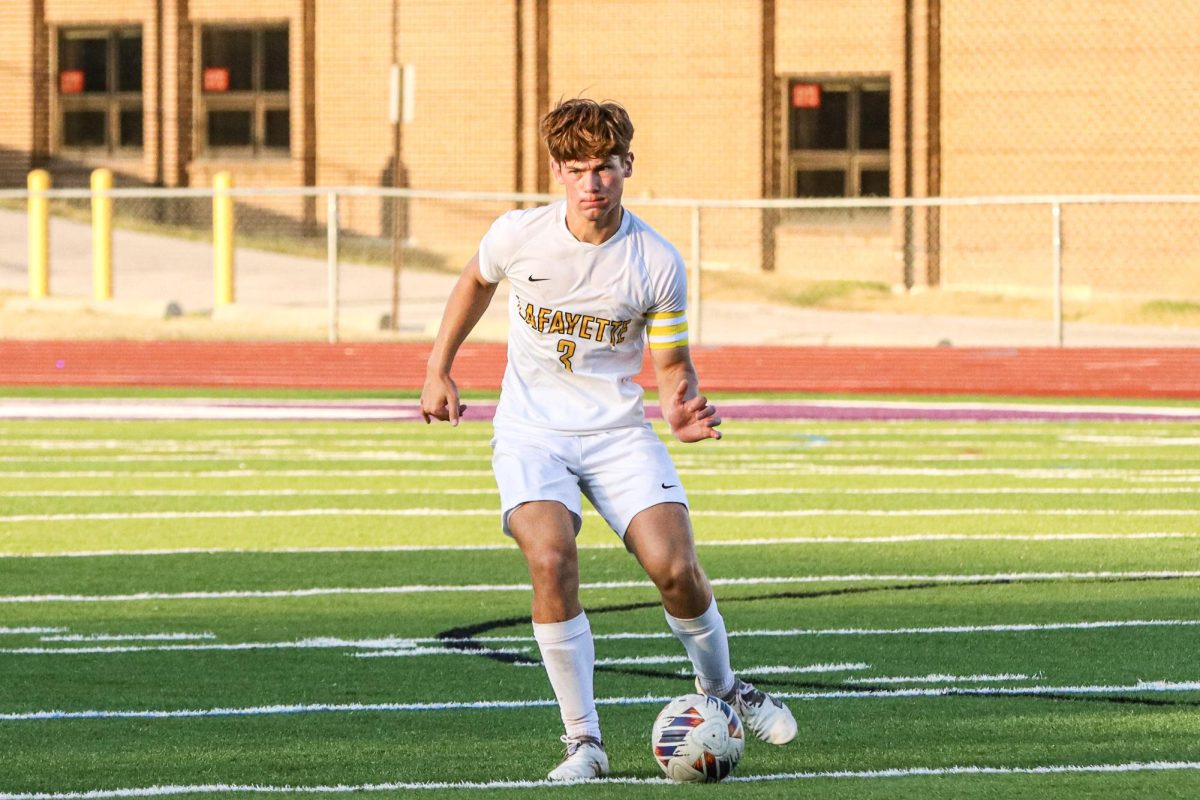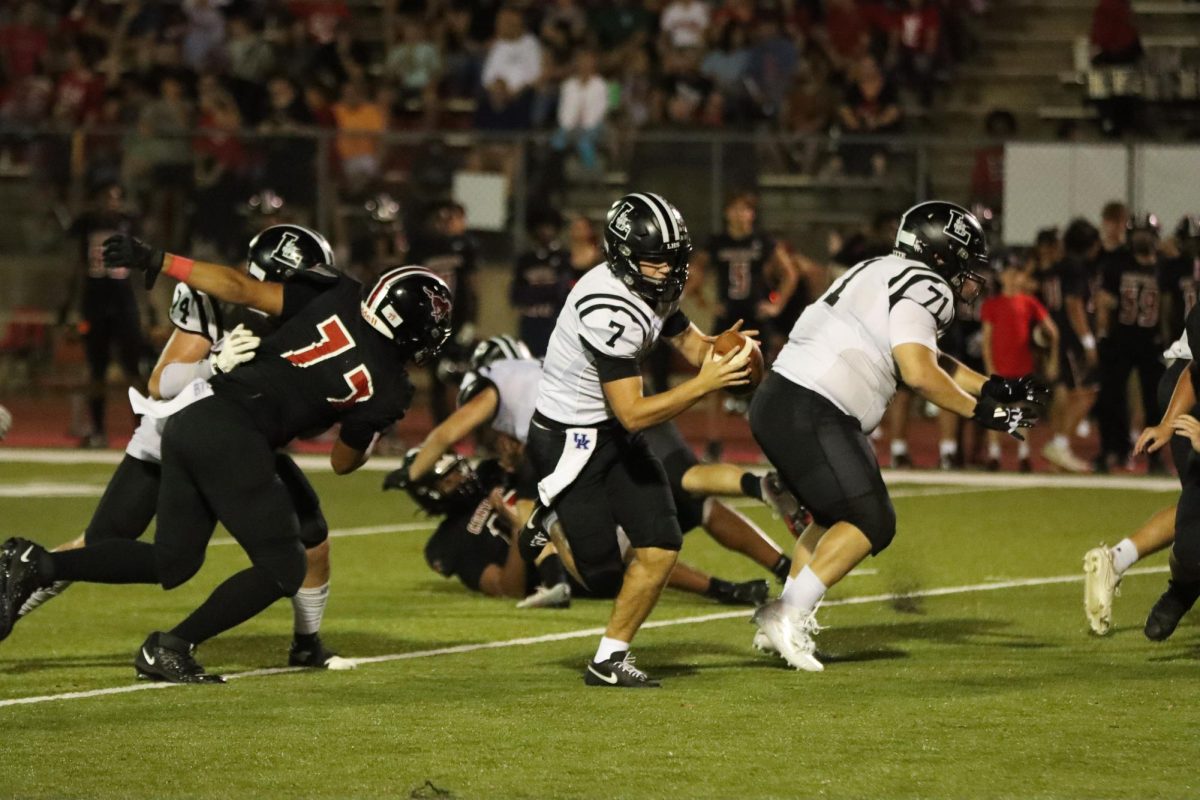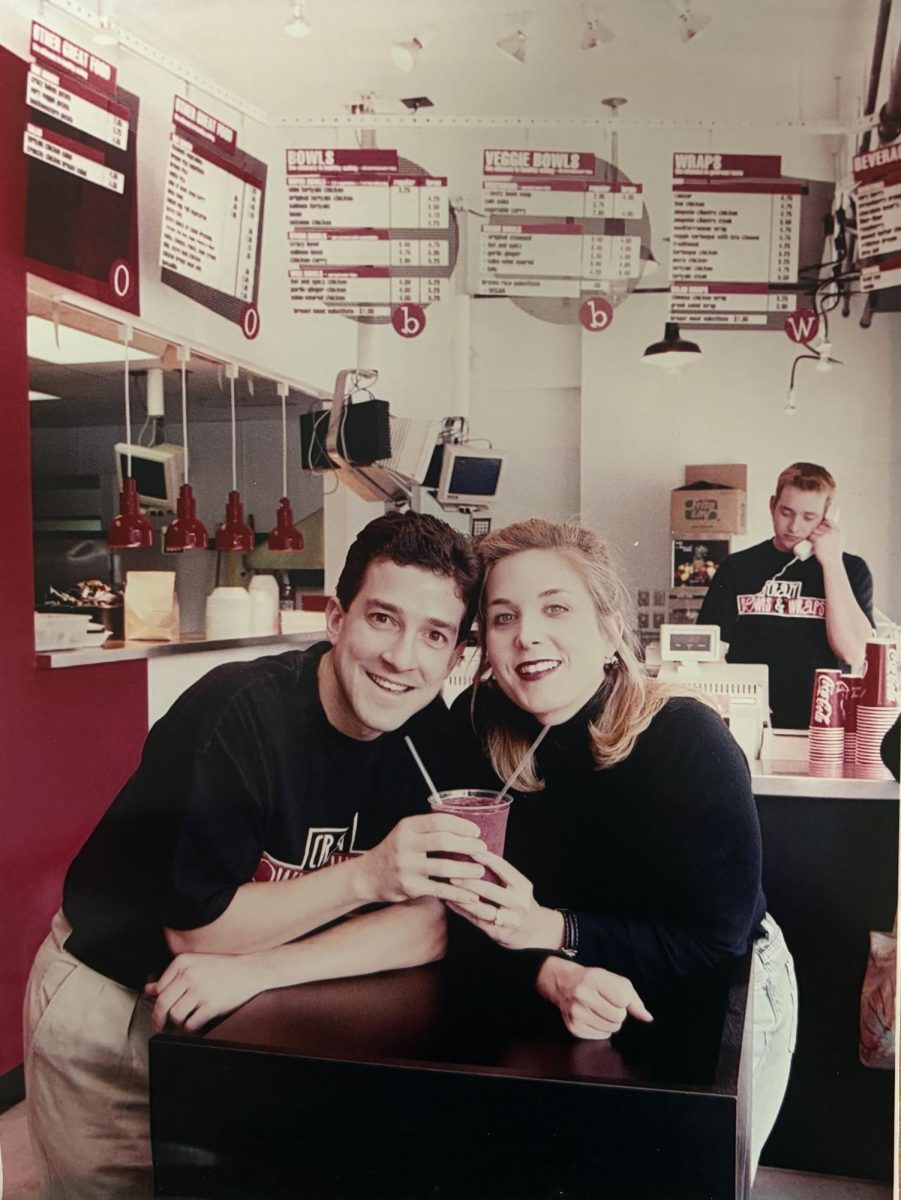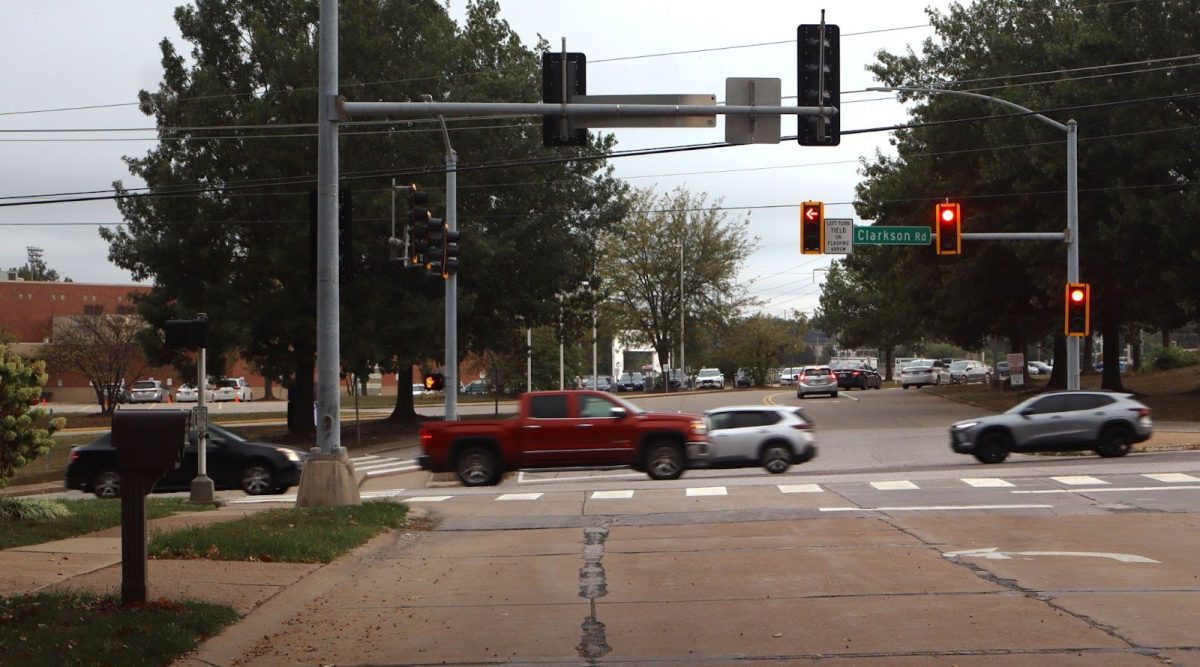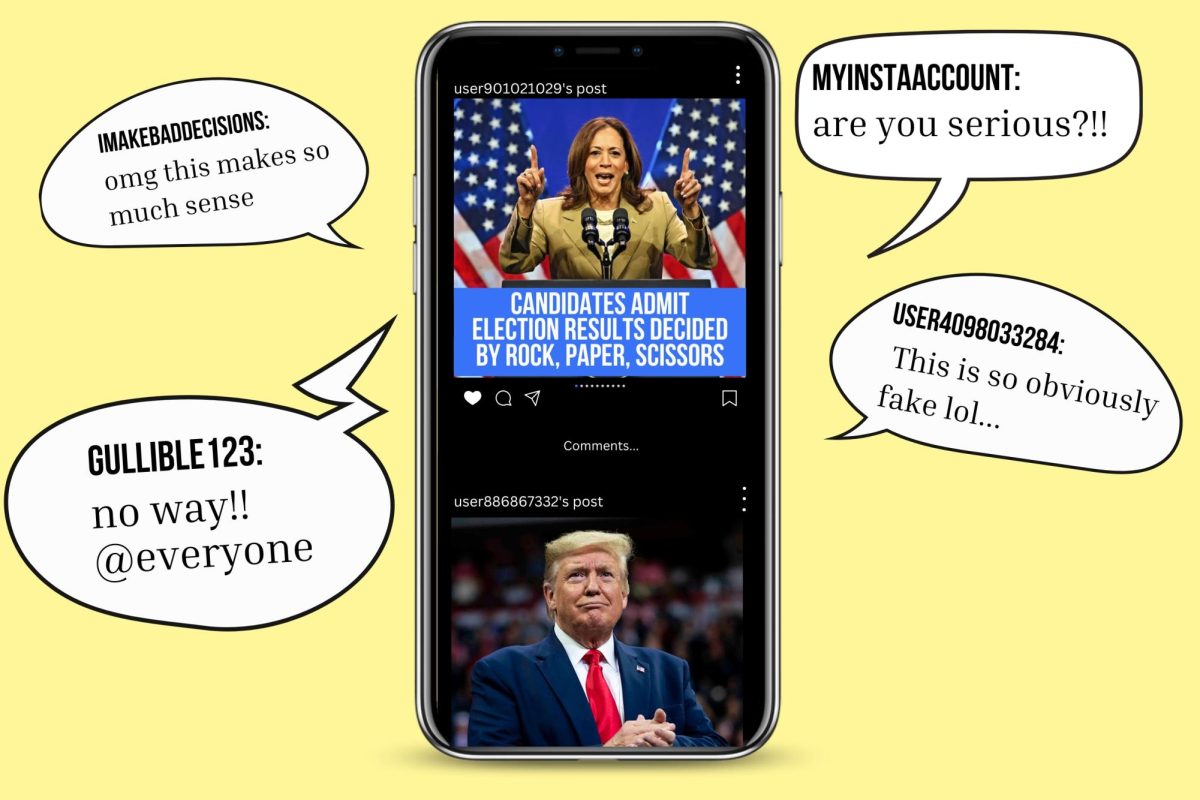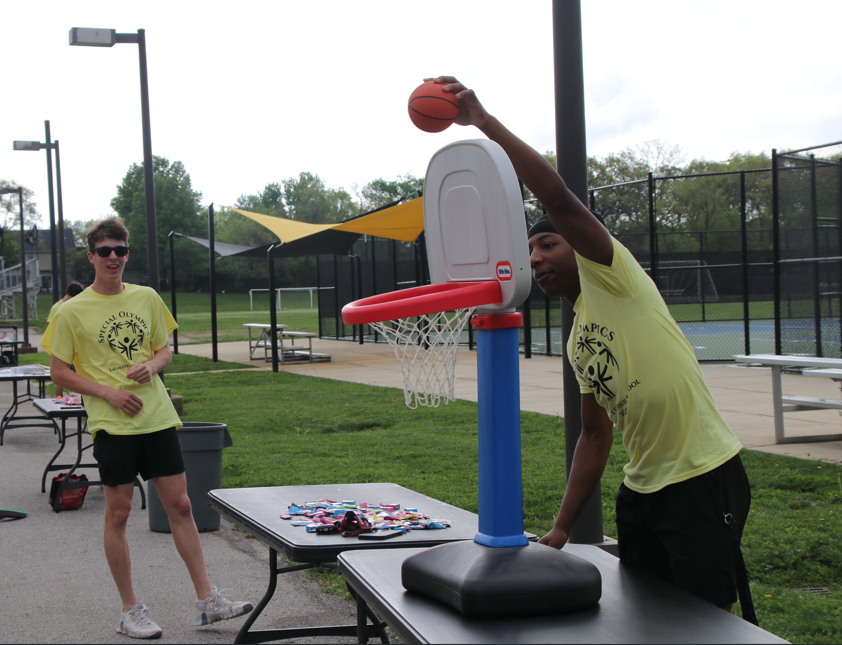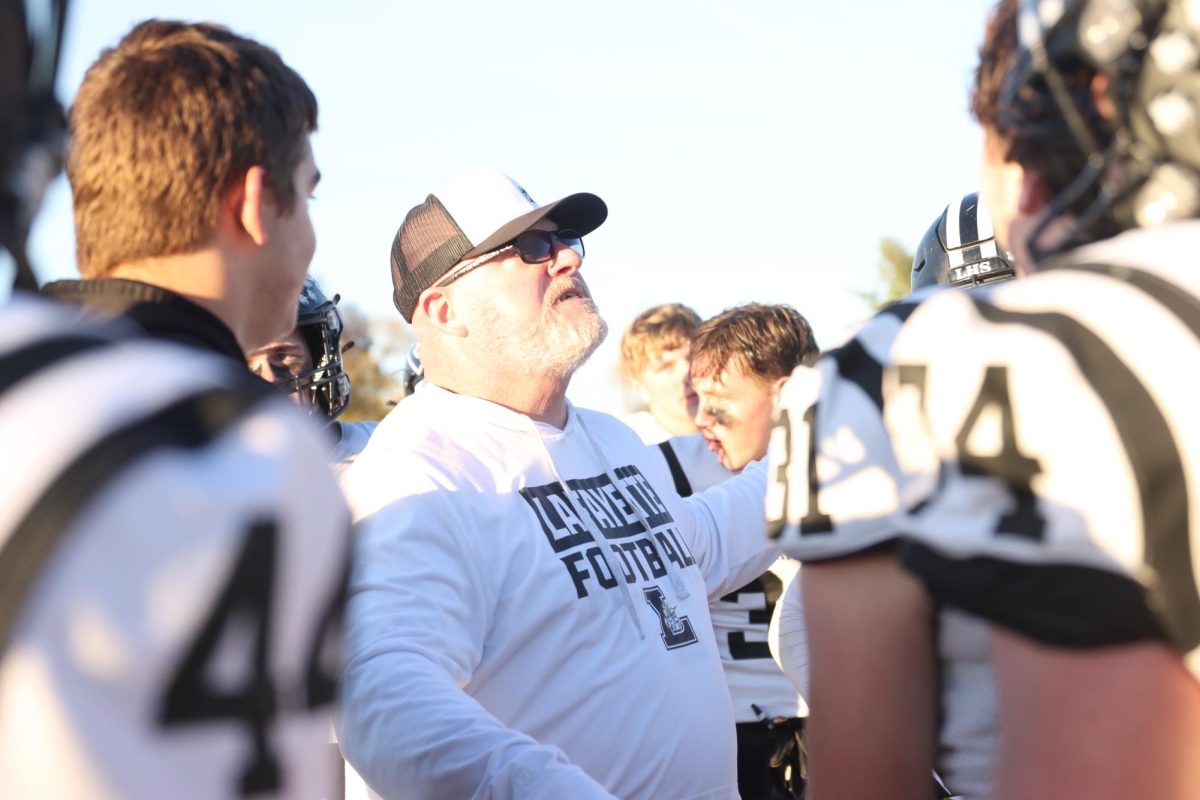Lourdes Martin:
Originally from Saxony, Germany, junior Lourdes Martin decided to be an exchange student after her friends suggested it to her.
“A friend of mine did it last year with the same organization and everything. So I kind of decided to do the same as her and at first, I wanted to go abroad one year after I finished school in Germany but then I didn’t know, I was like, ‘I want to do it now,’” Martin said.
The program she went through is called German Language School. The program hosts over 150 students each year in Germany. It also has connections with other programs in different countries. Martin was able to come to the U.S. via these connections.
The process for the program was quite simple, Martin applied, and once she got in, she was told where she was going.
“So I guess four or five weeks before I got here, I got an email [that said] ‘you’re going to live one year in Missouri, Saint Louis.’ I knew that [Saint Louis] exists but I’ve never heard [much about it before],” Martin said.

Exchange students are given a host family based on their interests. They have to fill out many applications and forms before they are given one. Martin did the same.
“I had to fill out a long application and my host family did kind of the same. The local coordinator read in my application that I drive a unicycle and then she searched for ‘unicycle clubs in Missouri’ and then came to my host family’s website. They have like a circus and so she called them and said ‘do you want to have an exchange student for 10 months.’ And they were like, ‘OK’,” Martin said.
She also plays unicycle hockey. Unicycle hockey, Martin said, is a team sport similar to roller hockey but is played while being mounted on a unicycle. The sport is mostly popular in the UK, Germany, and Switzerland. But it’s not that popular in the US.
Because there aren’t any unicycle hockey teams in St. Louis, she doesn’t get to play the sport here. She does, however, get to meet the performers from her host family’s circus and gets to ride with them.
At Lafayette, Martin also plays on the JV field hockey team.
School in Germany is also very different. Instead of having six-minute breaks like in LHS, her school had 30-minute breaks after classes. Also, sports in Germany aren’t connected to the school like some are in the U.S.
Despite the differences, Martin said she is happy to be able to be in the U.S. and has so far enjoyed this opportunity.
Julio Palma Rueda:
After a trip to Florida last year, junior Julio Palma Rueda decided to be an exchange student.
“My parents, like three years ago, asked me if I wanted to do [an exchange student program]. I said no because it was far. But last year, I went three weeks to Florida and I loved the US, so I decided to do [the program],” Palma said.
Palma met his host family through Instagram. His host mom saw his profile and decided to follow him. This led to them being Palma’s host family.
“I think that was the 23rd of February and I got it with her because I put my Instagram bio, my curriculum [Exchange program],” Palma said.
Palma came to the U.S. from Malaga, Spain via the American Cultural Exchange Service. The program is a non-profit organization dedicated to international, cultural and educational exchange, according to their website. ACES spans over 56 countries and 300 high schools.

“I was lucky because the day I had to come here, I was with one friend who’s now in South Dakota. So he is also a foreign student. I was lucky because I was not alone. So, I went with him and maybe 20 more students. We [all] went to Chicago, and then in Chicago, everyone [went to their separate] flight. My friend went with three other people [to South Dakota]. But I [came here]. I was really nervous,” Palma said.
Initially, the language barrier was a challenge for Palma, as it was hard for him to communicate.
“I think at first [it] was strange because I didn’t know anyone when I arrived. I had no idea how to speak English, so I didn’t even talk to my [host] family. But I think in the past two weeks I started learning more about the language, I met new people, I started practicing soccer and then I started football” Palma said.
Palma played on the JV football team as a receiver and sometimes safety. He decided to play football because it is an experience that he cannot have in Spain.
“In Spain, soccer is football and is [as popular as American football is here]. I [tried] soccer practice [at LHS], but [then] decided to do football instead because that is an experience that I cannot have in Spain,” Palma said.
The biggest difference that Palma has seen in Missouri compared to Spain is the countryside.
“Here we are in [the woods]. In Spain, I live in the south near a big city by the beach,” Palma said.
Another difference Palma was surprised about in the U.S. was the difference in the school day schedule.

Palma has so far enjoyed his experience in the U.S., and he hopes to hang out with more new people.
“In Spain, we usually [just] play soccer with friends. In Spain the minds of people are 100% in soccer. So all the people, all the time, talk about [soccer],” Palma said. “But I think people here prefer to maybe go to dinner or go to the cinema. So I started hanging out. I want to [do more of these things],” Palma said.
Areej Younas:
In response to the events of 9/11, hoping to bridge the gap between the US and countries with significant Muslim populations, the Kennedy-Lugar Youth Exchange and Study program was created. According to the American Council’s website, YES provides opportunities for high school students from Muslim countries to immerse themselves in American high schools, develop cross-cultural skills, along with building lasting friendships.
Junior Areej Younas is part of the YES program and is currently an exchange student at LHS. Younas, who is from Rawalpindi, Pakistan, joined the program because she thought it would be cool to study in America and experience the culture.
“Basically, my teacher told me about it in school when I was in 10th Grade and it seemed pretty cool, studying in an American high school and experiencing culture. And in this program, I’m also considered a cultural ambassador of my country. I [thought] being a culture ambassador at such a young age seemed very cool. So I applied for it,” Younas said.

The application process was very competitive, and it took Younas eight months to get selected. After she was selected for the program, she had to fill out many forms and applications before she ended up in Saint Louis.
“I also had to write a host family letter, which was two pages, and this was at the start of the application process. Based on that application, I got selected further and further, but there were also interviews,” Younas said.
Once finally in America, Younas started witnessing differences. One of those was the size of portions when it came to food.
“Everything is in bigger portions here. I ordered a small ice cream [and] they gave me this [big scoop]. I thought I [had] ordered a large one. They use things excessively, you can say,” Younas said.
Younas also said there is less traffic in America and school is very different.
“I have so many opportunities here that are not in Pakistan, and I joined many clubs. I have to, [because] I’ve been given the opportunity to explore various fields and that’s not the thing in Pakistan,” She said.
Some of the clubs that Younas has joined here include Lafayette Theater Company, Speech and Debate, Women in STEM, French Club, Yearbook and she also plays JV tennis.
Younas believes that the best part of being an exchange student is that she learns about different cultures and gets to meet so many new people. Via the program, she has made friends in Tunisia, Morocco, Syria and Libya.
Since she is a cultural ambassador, Younas is giving presentations on her culture.
“There’s an International Education Week that’s Nov. 13-17. I am planning to give 50 presentations, even though that’s crazy. During [the] week I’ll go to different classes and give presentations. I’ll display stuff that I bought from my home country. Also, I have leadership projects that I have to do. I have to do career scheduling. I have to complete some hours of volunteering too,” Younas said.
Despite the work, Younas said she is happy to be part of this program because YES makes a positive impact and helps end dangerous stereotypes.
“So this basically ended the stereotypes and the misconceptions about all the Muslim countries and America in the world. And it bridged those two countries, culturally and all the differences. People are similar here, like students, we are similar even though I’m from a whole other country,” Younas said.






